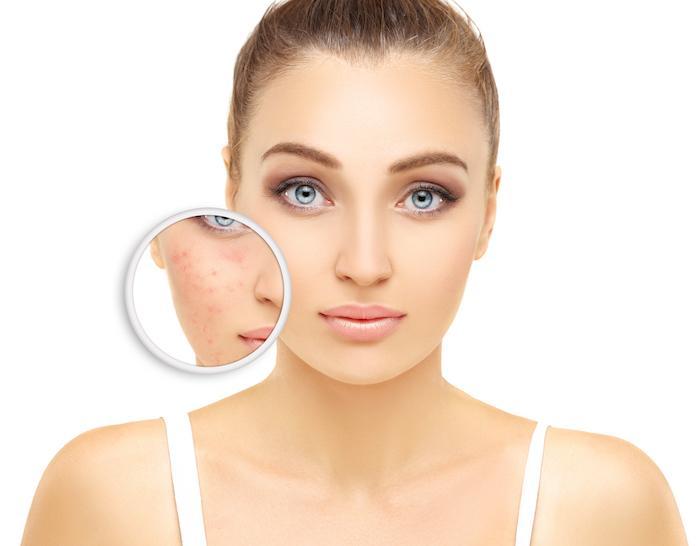Buy accutane online, Achieving clear skin is a goal for many people struggling with acne, a common skin condition that affects individuals of all ages. Acne can be persistent and emotionally distressing, but various treatments have proven effective in managing and reducing its symptoms. Here’s a comprehensive look at the top acne treatments for clear skin, covering over-the-counter solutions, prescription medications, and lifestyle changes.
Over-the-Counter (OTC) Treatments
OTC treatments are widely accessible and often the first line of defense against mild to moderate acne. These products typically contain active ingredients that target the primary causes of acne: excess oil production, clogged pores, bacteria, and inflammation. More pill for acne solution isotretinoin 40 mg on dosepharmacy.
- Benzoyl Peroxide Benzoyl peroxide is a powerful antibacterial agent that kills acne-causing bacteria (Propionibacterium acnes) and reduces inflammation. It is available in various concentrations, ranging from 2.5% to 10%, and can be found in cleansers, gels, and creams. Benzoyl peroxide also helps to unclog pores by removing dead skin cells, making it effective for both inflammatory and non-inflammatory acne.
- Salicylic Acid Salicylic acid is a beta-hydroxy acid (BHA) that exfoliates the skin, penetrates into the pores, and dissolves the debris that clogs them. This helps prevent new pimples from forming and treats existing blackheads and whiteheads. Salicylic acid is commonly found in cleansers, toners, and spot treatments with concentrations ranging from 0.5% to 2%.
- Alpha Hydroxy Acids (AHAs) AHAs, such as glycolic acid and lactic acid, are water-soluble acids that help exfoliate the skin’s surface, promoting cell turnover and reducing the appearance of acne scars. They are beneficial for treating surface-level acne and improving overall skin texture. AHAs are available in various skincare products, including masks, toners, and serums.
- Sulfur Sulfur has been used for decades in acne treatment due to its ability to absorb excess oil and exfoliate dead skin cells. It also has antibacterial properties. Sulfur treatments can be found in masks and spot treatments, often combined with other acne-fighting ingredients.
Prescription Treatments
For more severe cases of acne, prescription treatments may be necessary. These medications are typically stronger and require supervision by a healthcare professional.
- Topical Retinoids Retinoids, derived from vitamin A, are potent compounds that increase cell turnover and prevent the formation of new comedones (clogged pores). Tretinoin, adapalene, and tazarotene are common topical retinoids prescribed for acne. They help reduce inflammation and can improve the appearance of acne scars over time. However, they can cause skin irritation, so it’s important to start with a lower concentration and increase gradually.
- Oral Antibiotics Oral antibiotics such as doxycycline, minocycline, and erythromycin are prescribed to reduce the bacterial load and inflammation associated with moderate to severe. These antibiotics are often used in combination with topical treatments to enhance their effectiveness. Due to the risk of antibiotic resistance, they are typically prescribed for a limited duration.
- Hormonal Treatments Hormonal fluctuations can contribute to, particularly in women. Birth control pills containing estrogen and progesterone can help regulate hormones and reduce acne. Another option is spironolactone, an anti-androgen medication that reduces oil production. These treatments require a prescription and regular monitoring by a healthcare provider.
- Isotretinoin (Accutane) Isotretinoin is a powerful oral retinoid used for severe, cystic acne that has not responded to other treatments. It works by shrinking the sebaceous glands, thereby reducing oil production and preventing clogged pores. While highly effective, isotretinoin has significant potential side effects, including dryness, mood changes, and birth defects, necessitating close medical supervision.
Natural and Home Remedies
In addition to conventional treatments, some individuals find relief with natural and home remedies. While scientific evidence for these treatments is often limited, they can be beneficial for mild acne.
- Tea Tree Oil Tea tree oil has antimicrobial and anti-inflammatory properties, making it a popular natural remedy for acne. Studies suggest that a 5% tea tree oil gel can be as effective as 5% benzoyl peroxide in reducing acne lesions, though it works more slowly. It should be diluted before applying to the skin to prevent irritation.
- Aloe Vera Aloe vera is known for its soothing and healing properties. Its anti-inflammatory and antibacterial effects can help reduce and calm irritated skin. Aloe vera can be applied directly from the plant or found in various skincare products.
- Honey and Cinnamon Mask Honey and cinnamon both have antibacterial and anti-inflammatory properties. A mask made from these ingredients can help reduce acne by killing bacteria and soothing inflamed skin. Mix two tablespoons of honey with one teaspoon of cinnamon and apply it to the face for 10-15 minutes before rinsing off.
Lifestyle and Dietary Changes
Lifestyle and dietary habits can significantly impact acne. Adopting a holistic approach that includes these changes can complement other acne treatments.
- Healthy Diet A diet high in processed foods, sugars, and dairy products has been linked to acne. Opting for a balanced diet rich in fruits, vegetables, whole grains, and lean proteins can help manage acne. Foods with a low glycemic index may be particularly beneficial, as they do not spike blood sugar levels and can reduce inflammation.
- Hydration Drinking plenty of water helps maintain skin hydration and can aid in the detoxification process. Proper hydration supports overall skin health and can help prevent clogged pores.
- Stress Management Stress can trigger or exacerbate on by increasing the production of cortisol, which in turn stimulates oil production. Incorporating stress-reducing practices such as yoga, meditation, and regular exercise can help manage acne.
- Skincare Routine A consistent skincare routine tailored to your skin type is crucial for managing acne. This includes gentle cleansing twice daily, using non-comedogenic moisturizers, and applying sunscreen to protect the skin from UV damage. Avoiding harsh scrubbing and over-cleansing can prevent irritation and further breakouts.
Conclusion
Treating acne requires a multifaceted approach tailored to individual skin types and the severity of the condition. While OTC treatments can be effective for mild to moderate acne, prescription medications may be necessary for more severe cases. Natural remedies and lifestyle changes can also play a supportive role in achieving clear skin. Consulting with a dermatologist can help identify the most appropriate treatment plan, ensuring both effectiveness and safety. With the right combination of treatments and practices, clear skin is an attainable goal for many individuals struggling with acne.

